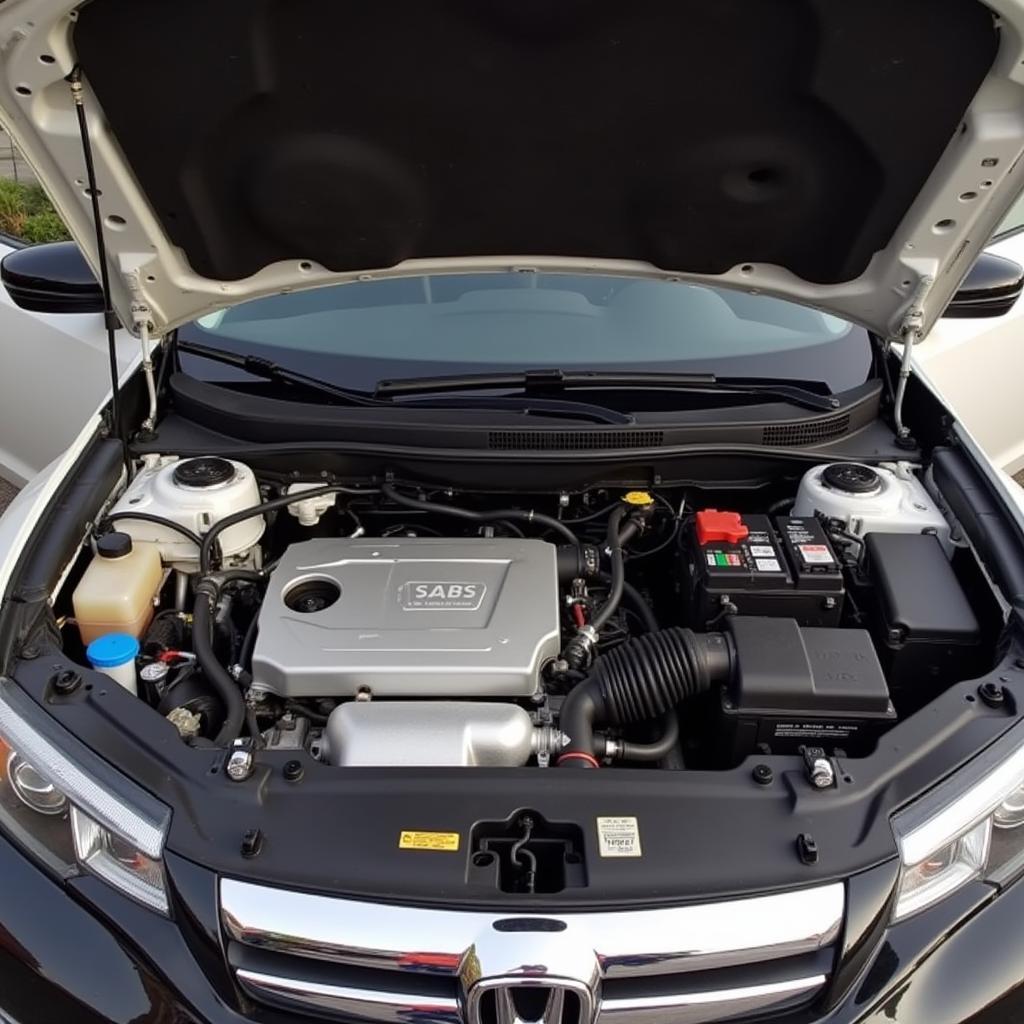Driving a vehicle with air brakes requires a keen understanding of safety procedures, and one of the most important is knowing how to respond to warning signals. An air brake warning alarm is designed to alert you of a potential issue with your air brake system, typically low air pressure. But what PSI level triggers this alarm, and what should you do when it activates? Let’s delve into the details.
Understanding Your Air Brake System and PSI
Your vehicle’s air brake system utilizes compressed air to engage the brakes. The “PSI” you often hear about refers to “pounds per square inch,” which is the unit used to measure air pressure. A healthy air brake system operates within a specific PSI range, usually between 100 and 125 PSI.
Air Brake Warning Alarm: What Triggers It?
The air brake warning alarm is a critical safety feature engineered to activate when the air pressure in your system drops below a safe threshold, usually around 60 PSI. This alarm is your cue that the brake system is not functioning optimally and requires immediate attention.
Common Causes of Low Air Pressure:
-
Air Leaks: Leaks are the most frequent culprit behind low air pressure. These leaks can occur in various components like air lines, hoses, fittings, or even the air compressor itself.
-
Faulty Compressor: Your air compressor is responsible for building and maintaining air pressure. A malfunctioning compressor won’t be able to maintain the required PSI, triggering the alarm.
-
Worn Brake Components: Over time, components like brake chambers and valves can wear out. This wear can lead to air pressure loss, activating the warning.
-
Drained Air Tank: Your air brake system includes air tanks that store compressed air. If these tanks drain excessively, the pressure will drop, triggering the alarm.
Steps to Take When the Alarm Sounds:
-
Maintain a Safe Distance: If the air brake warning alarm sounds while driving, immediately reduce your speed and maintain a safe distance from other vehicles.
-
Find a Safe Stop: Locate a safe place to pull over as quickly as possible. Driving with low air pressure is incredibly risky and can lead to brake failure.
-
Check the Pressure Gauge: Once safely stopped, inspect your air pressure gauge to assess the PSI level. Is it below the safe operating range?
-
Address the Issue: If you’re comfortable with basic troubleshooting and have the necessary tools, you can attempt to identify the cause of the low air pressure (e.g., visually inspecting for air leaks).
-
Seek Professional Help: In most cases, it’s safest to call for professional assistance. A qualified technician specializing in air brake systems can accurately diagnose the issue and perform the necessary repairs.
“Ignoring an air brake warning alarm can have serious consequences. It’s crucial to address any air brake issues promptly to ensure your safety and the safety of others on the road,” says Mark Stevenson, a certified automotive technician with 20 years of experience in heavy-duty truck repair.
Preventing Air Brake Issues:
Regular maintenance is key to preventing air brake system problems. This includes:
-
Routine Inspections: Get your air brake system inspected by a qualified technician at the intervals recommended by your vehicle manufacturer.
-
Drain Air Tanks: Moisture can accumulate in your air tanks and lead to corrosion. It’s essential to drain the tanks regularly.
-
Address Leaks Promptly: Don’t ignore even minor air leaks. Have them repaired by a professional as soon as possible to prevent them from escalating into major problems.
Conclusion:
The air brake warning alarm is a crucial safety feature that demands immediate attention. Understanding what triggers it and how to respond can be the difference between a near miss and a serious accident. Regular maintenance and prompt attention to any issues are essential to keeping your air brake system in optimal condition and ensuring safe driving.
Frequently Asked Questions:
-
Can I drive with the air brake warning alarm on? It’s incredibly dangerous to continue driving with the alarm active. The low air pressure significantly reduces your braking ability, increasing the risk of an accident.
-
How often should I drain my air tanks? It’s advisable to drain your air tanks at least once a day, especially in humid environments. Refer to your vehicle’s owner’s manual for specific recommendations.
-
How can I tell if my air compressor is faulty? A failing compressor may exhibit symptoms like unusual noises, slow air pressure buildup, or an inability to maintain pressure.
-
What happens if my air brakes fail completely? If your air brakes fail completely, your vehicle will lose its primary braking system. This is an extremely dangerous situation. You’ll need to use the parking brake to bring the vehicle to a stop.
-
How much does it cost to repair an air brake system? Repair costs can vary widely depending on the nature and severity of the issue. Simple repairs like replacing a hose can be relatively inexpensive, while major repairs like replacing a compressor can be quite costly.

